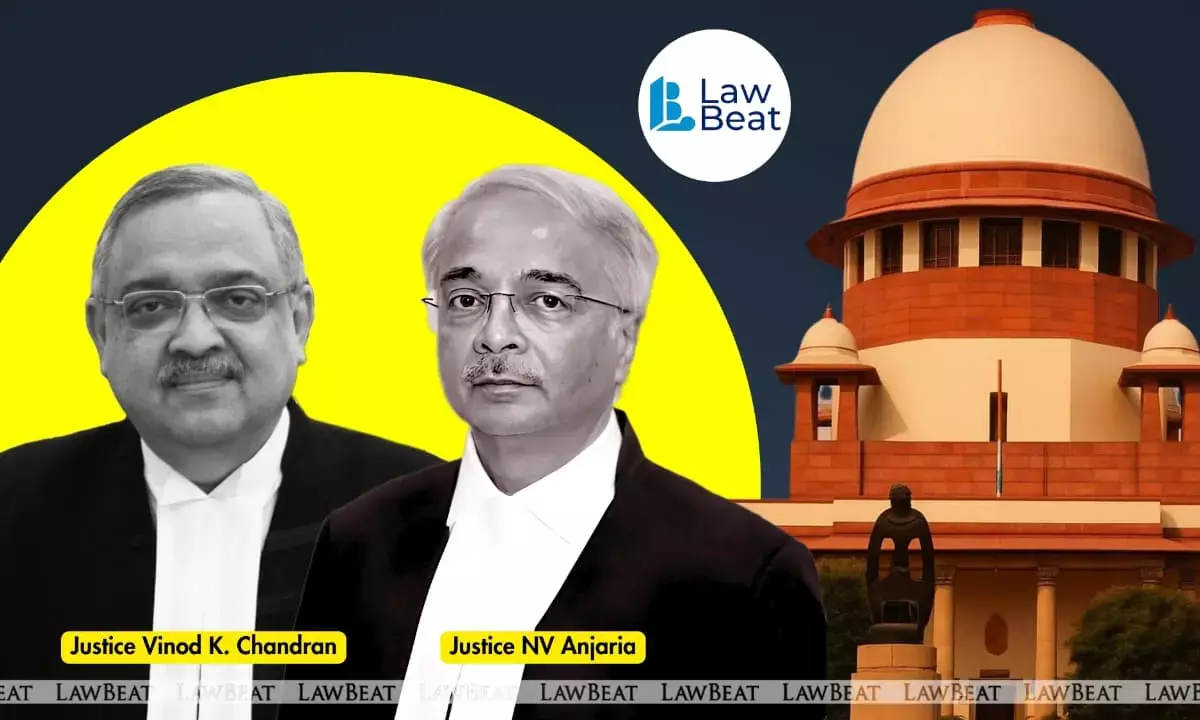‘Workmen’s Compensation Act Can’t Apply in MV Act Claims’: SC Restores Full Compensation

The Supreme Court clarifies that high court cannot legally apply Workmen's Compensation Act limits for MACT income fixation
The Supreme Court has clarified that a high court cannot legally apply the parameters of the Workmen’s Compensation Act, 1923 for fixing a claimant's income when the compensation has been assessed and fixed by the Motor Accident Claims Tribunal (MACT) in a claim petition under Section 166 of the Motor Vehicles Act (MVA).
Emphasizing the distinction between the two statutes, a bench of Justices K Vinod Chandran and N V Anjaria set aside the Karnataka High Court's judgment and restored the MACT's original decision, which had awarded Rs. 19,35,400 to the injured victim, Mohammed Masood, in a matter arising out of a motor accident claim.
The appellant-claimant, Mohammed Masood, was a loader travelling in a lorry from Kunigal to Nelamangala when his vehicle met with an accident on December 1, 2015, dashing with an unknown ongoing vehicle. The appellant sustained injuries in the right leg, necessitating amputation below the knee. The MACT, while assessing the compensation for the 23-year-old injured appellant, had determined his monthly income at the time of the accident to be Rs. 9,000. Applying a whole-body disability of 85% and a multiplier of 18, the tribunal calculated the total compensation.
The insurance company subsequently preferred an appeal before the high court, which adopted a different view regarding the injured appellant's income, reducing it to Rs. 8,000 instead of the Rs. 9,000 fixed by the tribunal. The high court was of the opinion that since the maximum income that could be considered under the Workmen’s Compensation Act, 1923 is Rs. 8,000, that figure should have been adopted for the injured appellant’s income. Consequentially, the high court reduced the total compensation from Rs. 19,35,400 to Rs. 10,41,022.
The appellant contended that the high court committed an error by fixing the income with reference to the Workmen’s Compensation Act, thereby reducing the figure of income that had been considered and applied by the tribunal. The appellant relied on the apex court's decision in National Insurance Company Limited vs. Mastan and Anr (2006). The appellant was also aggrieved that 'future prospects' were not added when arriving at the total compensation.
Counsel for the appellant submitted that an addition of 40% of the established income should have been granted, given that the injured was below 40 years, in light of the decision in National Insurance Company Limited vs. Pranay Sethi (2017).
The apex court noted, "The Tribunal having determined the compensation on that basis, the High Court misdirected itself in applying the criteria under the provisions of the Workmen’s Compensation Act, 1923 to take the view that the income of the appellant claimant was liable to be considered at Rs 8,000. The High Court consequently reduced the compensation".
In Mastan & Anr, the bench pointed out that the Supreme Court had held that once a claimant elects to pursue the remedy under the Motor Vehicles Act, 1988 and the tribunal adjudicates the compensation by applying the criteria and fixing the income under the MVA, "falling back upon the parameters under the Workmen’s Compensation Act, was not permissible".
The bench cited that the insurer could not have raised such a defense seeking to apply the provisions of the Workmen’s Compensation Act, as both remedies are different.
Court held that, in the present case, the reasons supplied by the high court and the consequential reduction in the compensation could not be permitted to stand.
With regard to the non-adding of ‘future prospects’ raised by the appellant, the bench observed that it would not be permissible for the court to go into and entertain the same. This was in view that the appellant did not file any appeal to challenge the judgment and order of the tribunal; it was the insurance company who had approached the high court, the court pointed out.
Case Title: Mohammed Masood Vs The New India Assurance Co Ltd & Anr
Judgment Date: September 26, 2025
Bench: Justices K Vinod Chandran and N V Anjaria
